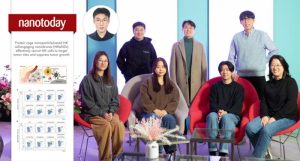Cancer sucks. Most of us either know someone who has cancer or have had cancer ourselves. I’m a cancer survivor, but many of my family members have passed due to cancer or complications from the disease or their treatment regimen.
According to the American Cancer Society, over 1,958,000 new cancer cases were diagnosed in 2023 in the United States alone. Cancer Research UK projects there will be 28 million new cancer cases annually by 2040. That’s terrifying. But there may be hope.
Have you heard of “natural killer” (NK) cells? I hadn’t. Apparently, they are innate lymphoid cells that play a vital role in our body’s immune response to cancer. Researchers have made numerous attempts to harness them into effective treatment therapies.
A team led by Professor Sebyung Kang and Professor Sung Ho Park in the Department of Biological Sciences at UNIST in South Korea has made a breakthrough. They’ve created what they call “NK cell-engaging nanodrones,” (NKeNDs) which can selectively target and eliminate cancer cells using a modular delivery nanoplatform called AaLS protein cage nanoparticles.
The NKeNDs can target and recruit ligand molecules through the SpyCatcher/SpyTag protein ligation system. The dual ligand-displaying NKeNDs, named HER2 @NKeND and EGFR@NKeND, can selectively bind to HER2-overexpressing SK-OV-3 cells and EGFR-overexpressing MDA-MB-468 cells, respectively, as well as human NK cells. The human NK cells activate when targeting cancer cells through the NKeNDs and eliminate the target cancer in vitro.
When tested on SK-OV-3 tumor-bearing mice, administering HER2 @NKeNDs along with human PBMCs facilitates the infiltration of activated human NK cells into the tumor sites, significantly suppressing tumor growth without causing noticeable side effects.

Credit: UNIST
“This research presents new possibilities for immune treatment through NK cell delivery nanodrones, overcoming challenges such as the movement and survival of NK cells. We aim to provide new opportunities for customized treatments that selectively address various types of cancer through further research, including cancer-specific immune cell induction,” said Professor Kang Se-byung.
Their study was published in Nano Today.

